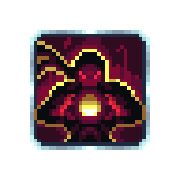|
Didn't see a thread for general P&P questions so hopefully this fits in here. I'm looking for a generic tabletop rpg system out there that fits the following criteria: 1) Is easy to GM for. As in easy to work out encounter/enemy/NPC stats, player advancement, and isn't loaded with down with dozens of skills you have to remember for working out storytelling decisions. 2) Is more narrative focused. Combat is fine, just don't want that to be the focus. At a minimum a system that isn't overloaded with rules designed to support miniatures work. 3) Has at least a few heavy lore sourcebooks to pull from, at least one setting in magical fantasy and one in Sci-Fi with a least a little bit of space opera? Mainly focused on the idea of equipment, ability, and NPC stats. I don't mind dragging lore in from anywhere but I'm looking for painless to adapt (in line with item #1) options. 4) As at least a few one-shot/few sessions longs pre-made adventures to practice GM'ing with. 5) Has to have enough of a community I stand a chance of finding some online games newbie friendly games I can join up with to help learn and find out I like the system after just reading about it. Basically trying to see if I can deep dive into a single system that can meet the needs or if I'm stuck just picking a few systems that specialize in a setting I'm happy with. Of the ones I know of and have looked into: Savage Worlds - Very combat and miniatures focused, so it's out. GURPs - Seems exceptionally painful to GM for. Sure once you've assembled your world and the content you want to use it's probably fairly easy but getting to that point looks like a bit yikes. Genesys - Decent potential. Kind of worried how much load there is in dealing with interpreting and playing out the narrative dice. Also maybe not a great time to pick up the system given the current shifting around of rights and whose publishing it. Fate - Combine a bit of the dice problem with Genesys with the Incursions and not sure how much this would be easy to run. Plus really hard to gauge how difficult it'd be to run a setting with just the free material I've been able to find on Fate. Cypher Engine - So far my leading contender as far as I can tell. Broadly fits all the needs, although confused about how well the actual Cyphers themselves would work in a variety of settings. Cortex Prime - I really can't tell how hard this would be to turn it from game engine to workable adventure. Plus not much in the way of official lore settings, although lots of community conversion guides for existing material. Index Card RPG - Even if the available "settings" are barely fleshed out, I think I could take what's available and tweak it with another setting. And if I had to do a combat heavy system with dungeon crawling this looks like it'd be okay for it's simplicity and speed. Maybe not a long term option but at least worth it and cheap enough to start something. Basic Roleplaying Universal Game Engine - One I've looked into less than the others. However it's missing an official Sci-Fi setting and I don't think the fantasy setting is very magical. Also concerned about skills bloat but admittedly haven't dug that deep into it yet. Big Eyes Small Mouth - Another one I've looked into less than the others. Seems combat focused, has a lot of attributes and conditions attached to characters, and unsure how extensive the worlds are in their setting book without buying it. If you made this far and want the background I haven't played a tabletop rpg game since high school, which was mostly AD&D. Briefly a couple games of D&D3e after it came out before my friends and I broke apart, never really played since. For various reasons I want to get back in but have a few complications. - The only thing advertised anywhere locally is D&D or Pathfinder/Starfinder. So I've either got to play those or offer to GM myself and try to find players. - I hate dungeon crawls, and I'm sure of that despite my long hiatus. Yes I know you can do otherwise with D&D or Pathfinder but I'd prefer not to try and drive a square truck through a small round hole. If I'm going to have to GM games then I'd rather pick a system without the baggage I hate about D&D (and that stuff like Pathfinder focused on improving) and try that. If the difference between me finding players and running games is whether I choose D&D or not (very unlikely, I'll surely find some other way to screw up) then I can live with calling this a failed run at getting back into TTRPGs. - I'm not a creative or imaginative person, hence the reason for #4/5 above. With any luck and this actually works out maybe I'll learn to be a bit more creative from this process. Edit: Didn't really notice as I was writing this up how I turned it into a post of lists.
|
|
|
|

|
| # ? May 26, 2024 18:32 |
|
If you don't mind sci Fi then mongoose traveller might fit the bill? Solid system, fun character creation, loads of adventure including a stone classic mega campaign. For fantasy, 13th age. Definitely. Also has a great campaign in eyes of the stone thief.
|
|
|
|
You might take a look at Cyberpunk RED. I think that has a noticeable amount of online activity and is not 100% mini's based even if I think they kind of presume a map to some extent for firefights. Sadly, the Baldur's Gate 3 total conversion mod is not yet developed.
|
|
|
|
|
You want a narrative rules-light generic system that's got elaborate sci-fi and fantasy lore and pre-made adventure paths? I think the closest you're really going to get to that is Apocalypse World, since it's kinda genre neutral once you get past the apocalypse part of things. At the very least, you can offset a lot of the creative load onto your players.
|
|
|
|
This does not fulfill all of the criteria, but in your shoes I would actually run a Starforged game (while Ironsworn/Starforged are designed as solo rpgs they're perfectly robust enough to be used in a more standard format) and use the location-creation oracles as prompts to write my own lore. I realize this is probably not at all going to satisfy requirements but it was the first thing I thought of and I immediately got kind of excited just thinking about it.
|
|
|
|
grassy gnoll posted:You want a narrative rules-light generic system that's got elaborate sci-fi and fantasy lore and pre-made adventure paths? I'm not against heavy rules, just against having a lot of overlapping or otherwise too granular "skills" to deal with. As in I don't want to deal with several different types of persuasion skills on top some other stats (like attributes) that can do the exact same job without the extra overhead. The type of persuasion someone might do should just be affected by what the player wants the character to do and as the GM the actual check is just a generic Charisma roll, maybe with an additional bonus if the player is role playing an intimidation style attempt and they're physically imposing or have a high strength value. On the other hand something like Traveller where you've got extra rules for planet generation and earning money through trading or ferrying are fine, they give a basis for a GM to just use as written for a quick answer to a problem or tweak as needed and aren't so central to the player's experience that you'd have to argue over what subset skill to use. I'd describe what I want as a rules system that isn't filled with borderline redundancies. Edit: And I'm not looking for adventure paths like say Pathfinder. I fully expect I'll have to make my own stuff up over time, but at least a few basic adventures to assist in learning how to be a GM is what I'm after. The other thing that bugs me which I didn't touch in my original post is games which add lots of rules for stuff but then abstracts away dealing with the implication of those rules. Like detailed inventory tracking. Oh, whether you have basic adventuring supplies matters but we'll just waive away what actually carrying those mean or roll into some sort of generic weight limit on your character. nessin fucked around with this message at 03:07 on Oct 31, 2023 |
|
|
|
With the exception of GURPS, Generic systems and detailed sourcebooks are pretty much mutually exclusive.
|
|
|
|
Bucnasti posted:With the exception of GURPS, Generic systems and detailed sourcebooks are pretty much mutually exclusive. yeah, pretty much look at it this way, who's going to write an elaborate lore book for a generic system designed for use with any setting? A crazy person like Steve Jackson
|
|
|
|
Bucnasti posted:With the exception of GURPS, Generic systems and detailed sourcebooks are pretty much mutually exclusive. GURPs books, as far as I can tell, have a ridiculous amount of pre-made items and skills to integrate but at a certain point just adding more doesn't exactly mean much. I didn't get a chance to look at any of their direct setting books while the mechanics books (like say Space or Ultratech) barely had any actual lore information, at least that I thought would be really useful in creating a session. As for others, Genesys has dedicated core books for Empire, Rebels, and Outlaw lore in Star Wars plus properties with tons of lore outside of the RPG like Legend of Five Rings, Keyforge, or Twilight Imperium now (and, you know, Star Wars). So long as the Genesys books have details about how to actually incorporate basic stuff into the actual game, that's a poo poo ton of material to work with. I'm not sure how deep individual Fate sourcebooks are, but there are something like six different flavors of setting books for every genre you can think of. Cypher has Numenera which has a lot of material attached to it, and several Cypher Engine specific books for some of their other settings such as The Strange or Invisible Sun. Not sure how deep they actually go, but it's a surprising amount of raw material. nessin fucked around with this message at 03:39 on Oct 31, 2023 |
|
|
|
Yeah, I also can't think of anything that hits all of your wants (and from a design perspective, some of them are things that would not normally go together), so you're probably going to have to compromise a bit and be okay with getting most of what you're asking for instead of all of it. Maybe it would help to know which ones are dealbreakers and which are nice-to-haves? (E.g. For you, is it more important not to be combat-focused or is it more important to have good setting info for sci-fi.)
|
|
|
|
Jimbozig posted:Yeah, I also can't think of anything that hits all of your wants (and from a design perspective, some of them are things that would not normally go together), so you're probably going to have to compromise a bit and be okay with getting most of what you're asking for instead of all of it. 1, 2, and some extent of 4 are the critical pieces. The advantage of going generic is to have multiple systems and ultimately I'll find something to run with it and be happy with. And if things work out and I devote everything to a generic system hopefully I'll get familiar enough to tweak some existing setting to what I'd prefer in the future. If there is something out there that is drat near perfect but there isn't a big community for it then I'll happily just try to find games on a somewhat similar system to get in the groove and do a deeper dive of the cliff than intended when starting a game locally. And so long as there at least an introductory scenario or two associated with the game, which I've never not seen one on any notable system, then I can work with that. Even for #2 as I noted I don't have a problem with combat as an option. I just don't want something that encourages dungeon crawls, regular random combat encounters (or the kind of 1 scene means at least 1 battle sort of expectation), and is something you could run across a table without a map and token/standee/figure and not feel like you're cutting out a chunk of the ruleset. If nothing else #1 is the absolutely can't compromise on. If it doesn't feel easy to create and manage something in the system as the GM then it's a hard no for me.
|
|
|
|
Anybody run Mutant City Blues 2e? The GUMSHOE-investigation-theory stuff makes a lot of sense, but they kinda staple some… less rigorous seeming trad-gaming stuff onto that very well-thought through base. I’m running a mini-campaign and I think MCB2e is my current top pick. I want to do a mystery, and the theme is fine (presuming fictional actually good cops). But I’m not sure the crunch is worth the work for three to six sessions. Anyone got experience?
|
|
|
|
Blades in the Dark. Plenty of fluff in the book, easy to run and play, several kits and actual plays out there to get you started. You can easily run a session on the fly, as long as you understand clocks. Cypher sucks, literally play Pathfinder instead if those are your options.
|
|
|
|
tokenbrownguy posted:Anybody run Mutant City Blues 2e? The GUMSHOE-investigation-theory stuff makes a lot of sense, but they kinda staple some… less rigorous seeming trad-gaming stuff onto that very well-thought through base. I ran a ~10 session game earlier this year. My players were really into both mystery-solving (which is why I used Gumshoe) and the idea of treating mutant powers as hard science (which is why we picked MCB). The non-investigative part of Gumshoe has always been very mediocre, and MCB is no different - it's sort of functional but needlessly grog-y and having run other Gumshoe games RAW before, I already knew neither myself nor anyone in the group would want to deal with a system that wasn't fiction-first. What I ended up doing was throwing out all the detailed mutant power rules (the stuff along the lines of "you can manipulate one cubic metre of water per point spent"). I had non-investigative mutant powers count as alternate sources of points for general abilities (so you can spend points from a power instead of whatever general ability you would normally use on a Test, as long as it makes sense in the fiction) that also give you a slightly different set of narrative permissions. Common power usage (e.g. using Water Manipulation or Ice Blast to put a fire out) works as just a regular test, and you might still be able to spend general ability points on that test if it makes sense in the fiction (e.g. Shooting if you were trying to put out a fire from a distance), but the narrative permission from having the power is what's required to even attempt it. If the mutant ability is especially well suited to the situation, each point spent gives +2 to the roll instead of +1 (so e.g. Swimming points could be used on an Athletics test to manoeuvre while in water, and each Swimming point spent in that scenario gives +2 to the roll instead of +1; you'd get +2 per Water Manipulation point spent if you're putting out a fire with a large source of water to use nearby; etc.). I cut the total number of mutant power points players get from 30 to 20 to compensate for the larger application of those points. If you do this, it's important to keep the restrictions on what mutant powers can accomplish in the setting in mind so that you don't give the players narrative permission to do something that would be straight up impossible per the fiction-as-established, since the limits of mutant powers are an important part of solving mysteries in the setting. Thankfully, the entries in the power list do a good job of telling you what is/isn't possible and assigning a general scale to point spends so you can eyeball what effects are appropriate. YMMV, but I found adjudicating all this stuff on the fly way easier than having to constantly figure out stupid hard limits on scale/duration/etc. given that we simply didn't bother tracking distances or time that way. Lemon-Lime fucked around with this message at 12:05 on Oct 31, 2023 |
|
|
|
Would anyone have any decent recommendations for a website or app for managing a card trade pool between a large-ish group players? Ideally one where people could manage their own card search lists and have it visible to a group. I run a discord group for a TCG in my city and it initially started as a sort of group chat for a handful of players for the game at my lgs and we initially were just running off a google doc spreadsheet where we listed what cards we needed and in what quantity. However the group has since grown to include the playerbase for a few other intermingling group at other stores on top of a few new players joining, and with the release of a new set this weekend on top of a new deck colour suddenly the spreadsheet feels a little inadequate and clumsy to use. Worst case scenario I'll just try and improve the spreadsheet, but assuming the group keeps growing I feel like I'll have to come up with a better solution eventually. Redezga fucked around with this message at 12:58 on Oct 31, 2023 |
|
|
|
nessin posted:Didn't see a thread for general P&P questions so hopefully this fits in here. I'm looking for a generic tabletop rpg system out there that fits the following criteria: Modiphius' 2d20 system is now a "generic system" in that there's an SRD. These mechanicshave been used for a bunch of games covering various genres including space opera (star trek, dune), space not-opera (infinity, homeworld), fantasy (conan) and space fantasy (john carter of mars), horror (achtung cthulhu) etc. These games have deep lore books too. Combat is not minis-centric, it uses "zones" rather than squares, but can be more detailed and fiddly than you might be looking for. It does have attributes and skills but maybe less daunting and you can pare them down if you want. Also consider PDQ. It is a very rules-lite system that's been around for a long time. There are no deep lore books but as a generic system you can just use any lore you want. Leperflesh fucked around with this message at 17:19 on Oct 31, 2023 |
|
|
|
Leperflesh posted:
This is probably your best bet, find a system that you like and then just pick up the lore and adventures for other games and adapt them.
|
|
|
|
Leperflesh posted:Modiphius' 2d20 system is now a "generic system" in that there's an SRD. These mechanicshave been used for a bunch of games covering various genres including space opera (star trek, dune), space not-opera (infinity, homeworld), fantasy (conan) and space fantasy (john carter of mars), horror (achtung cthulhu) etc. These games have deep lore books too. ARE YOU KIDDING ME. Ninja'd on a day old post. I was waiting til my boring morning meeting to write up my response. Ugh. Thunder stolen by my fellow 2d20 fan. nessin posted:Didn't see a thread for general P&P questions so hopefully this fits in here. I'm looking for a generic tabletop rpg system out there that fits the following criteria: May I pitch my preferred system: 2d20? The easiest way to pitch 2d20 is that it's like Genesys, without the funky dice, and actually actively supported. It's got a strong narrative core mechanic that encourages the table to come up with fiction-based responses to dice rolls. The mechanic is pretty meaty, so you can hang a lot of rules on it if you want to, but akin to the Apocalypse World failure onion, you can play just fine with the core mechanic alone. The book has a dozen game lines, ranging from transhuman cyberpunk to fantasy, and many of them have more splatbooks than most other systems. It's the system behind Conan, Star Trek, Infinity, Mutant Chronicles, Dishonored, Fallout, John Carter of Mars, Homeworld, Dune, Achtung! Cthulhu, and the recently Kickstarted COHORS Cthulhu. Lore books for DAYS. Admittedly, some of the games are out of print, but the core books are still found on Amazon easily. The games that are in print have quickstarts (often free or very on sale) that come with 3-5 hours of adventure. Many of the lines have one or multiple books of adventures in addition to campaigns - you can easily run a dozen single session adventures. Some versions are miniatures-adjacent (like Acthung! Cthulhu), but others keep their physical action scenes (combat plus) as light as Fate; Dune, for example, basically steals Fate Fractals and runs with them. The community is robust. There's an SRD (the best SRD out there, I will not be taking questions). #1 and #2 are subjective, but it perfectly delivers #3-#5. I highly value #1 and #2, and I'm currently running a Mass Effect-adjacent campaign with it using a modified version of A!C for high octane action scenes, but borrowing some hacking rules from Infinity. I think it absolutely nails the brief. CitizenKeen fucked around with this message at 18:45 on Oct 31, 2023 |
|
|
|
yeah that's a way better summary though so thanks citizenkeen lol
|
|
|
|
I disagree with the decision to name this forum "Trad Graves" instead of "Vlad Games."
|
|
|
|
I disagree with Rad Games not changing their name to "Rad Graves" to keep up with this forum.
|
|
|
|
It's OK, you only have to tolerate this terrible forum name for a few more hours. I'll ask for it to be restored to our usual trad games, tomorrow.
|
|
|
|
If tomorrow ever comes...
|
|
|
|
We should keep the subtitle to confuse people, though
|
|
|
|
Lemon-Lime posted:I ran a ~10 session game earlier this year. My players were really into both mystery-solving (which is why I used Gumshoe) and the idea of treating mutant powers as hard science (which is why we picked MCB). Wow, validation and good advice! Your thoughts line up with mine exactly. Appreciate you summarizing your hack.
|
|
|
Bucnasti posted:Anyone have suggestions for generic Larp systems? Agreeing with Doctor Yiff, I've played quite a few general and homebrew theater larp systems and honestly kind of hated every single resolution mechanism. Boffer larp, basic form of Accelerant works fine, hit someone with a sword it's one damage, use a skill it's more damage or an effect.
|
|
|
|
|
grassy gnoll posted:Blades in the Dark. Plenty of fluff in the book, easy to run and play, several kits and actual plays out there to get you started. You can easily run a session on the fly, as long as you understand clocks. I will second blades in the dark for being narrative driven, a good mix of easy to learn and run with or without prep, and just enough lore, abilities and gear to ground you in their setting. I'd also add for consideration two light hearted games that shift the emphasis away from fighting. Ryuutama emphasises wanderlust and the challenges of pre-industrial travel. It outsources a number of responsibilities to individual players via character-class-agnostic roles, like being the quartermaster and tracking food and trade goods, or the mapper who records the world as it comes to life during the game, or the leader whose responsibility it is to keep things moving forward and help with disputes. Monster Care Squad does away with the killing altogether. You're a team of emergency medical specialists, treating afflicted monsters with whom humanity shares a cordial, symbiotic relationship. Strong environmentalist, post-scarcity, post-nationalism themes. The world has a strong core of lore, but the details are flexible, as its a big place and many different peoples live there, and the line separating magic from technology is fuzzy if it exists at all. Be prepared to add your own flavour to your abilities and be given examples for skills rather than an exhaustive list. I'm about to start playing with part of my regular group and I'm excited. The monster of the week nature and the GMPC rules also lend themselves to a rotating GM schedule.
|
|
|
|
whose planning on buying the Rogue Trader reprint? already got mine and ive been just filled with ideas for making new vehicles and armies. like ive completely had my fascination with 40k reborn. im gonna do everything in my power to never buy official GW poo poo and make my army entirely kitbashed/scratch built/3rd party/printed and play a campaign with my buddies. trying to harvest all the articles from the white dwarf of the era to compile into a pdf too. I'm really looking forward to it honestly.
|
|
|
|
Trad Games Secret Santa is here!
|
|
|
|
So I’ve been doing some digging into how the idea of what a dungeon is has changed over time. It seems like TSR changed their definition from just some cave or underground place to just a generic sort of, “where the treasures and monsters are.” What is your favorite or most bizarre description of what a dungeon is?
|
|
|
|
PuttyKnife posted:So I’ve been doing some digging into how the idea of what a dungeon is has changed over time. It seems like TSR changed their definition from just some cave or underground place to just a generic sort of, “where the treasures and monsters are.” probably how these two blog posts do it; https://gameswithothers.blogspot.com/2013/06/other-frontiers-dungeons-megadungeons.html https://gameswithothers.blogspot.com/2013/07/gnosis-logos-and-esoterica-magic-users.html
|
|
|
|
PuttyKnife posted:So I’ve been doing some digging into how the idea of what a dungeon is has changed over time. It seems like TSR changed their definition from just some cave or underground place to just a generic sort of, “where the treasures and monsters are.” A dungeon is a collection of locations in a set spatial arrangement, with specific entrance(s) to the circuit. Basically, anytime you are trying to get from A to B and have to go via C, but can't get there via D, and if you want to leave the meta-location you must get back to X or Y - you're in a dungeon baby! A derelict spaceship is a dungeon, a haunted house is a dungeon, a megacorp skyscraper is a dungeon, a wizard prince's floating cloud palace is a dungeon, a space/time analomy where you can move between nine different time periods while being stuck in the same room is a dungeon.
|
|
|
|
PuttyKnife posted:So I’ve been doing some digging into how the idea of what a dungeon is has changed over time. It seems like TSR changed their definition from just some cave or underground place to just a generic sort of, “where the treasures and monsters are.” Dungeon as Mythic Underworld will always be my definitive conception of what "Dungeon" means in Dungeons & Dragons: "a place where the normal laws of reality may not apply, and may be bent, warped, or broken. Not merely an underground site or a lair, not sane, the underworld gnaws on the physical world like some chaotic cancer. It is inimical to men; the dungeon, itself, opposes and obstructs the adventurers brave enough to explore it." quote:Dungeon as Mythic Underworld Dungeon as Hill House, essentially. "The dungeon, not sane, stood by itself against its hills, holding darkness within; it has stood for a thousand years and might stand a thousand more. Within, walls continued upright, bricks met neatly, floors were firm, and doors were sensibly shut; silence lay steadily against the wood and stone of the dungeon, and whatever walked there, walked alone."
|
|
|
|
Robin Laws defined a dungeon as any place where your characters movement through it also furthers their progress through the scenario.
|
|
|
|

|
|
|
|
That's not how the meme works.
|
|
|
|
the meme generator I found wouldn't let me change the box labels
|
|
|
|
Plutonis posted:That's not how the meme works. IDK I think it works better like this.
|
|
|
|
Disneyland literally has an extensive network of underground tunnels. You can book tours of them.
|
|
|
|

|
| # ? May 26, 2024 18:32 |
|
Plutonis posted:That's not how the meme works. It's the neutral evil layout.
|
|
|





































